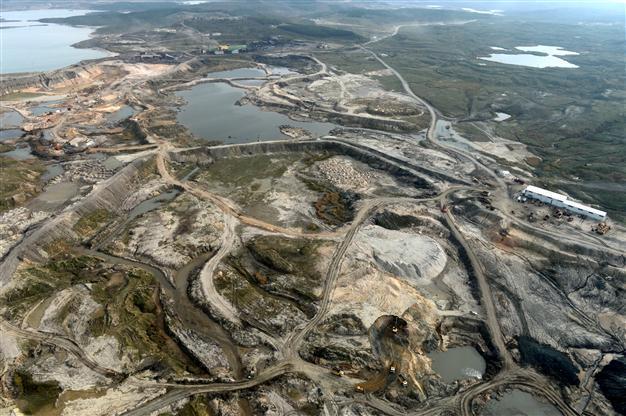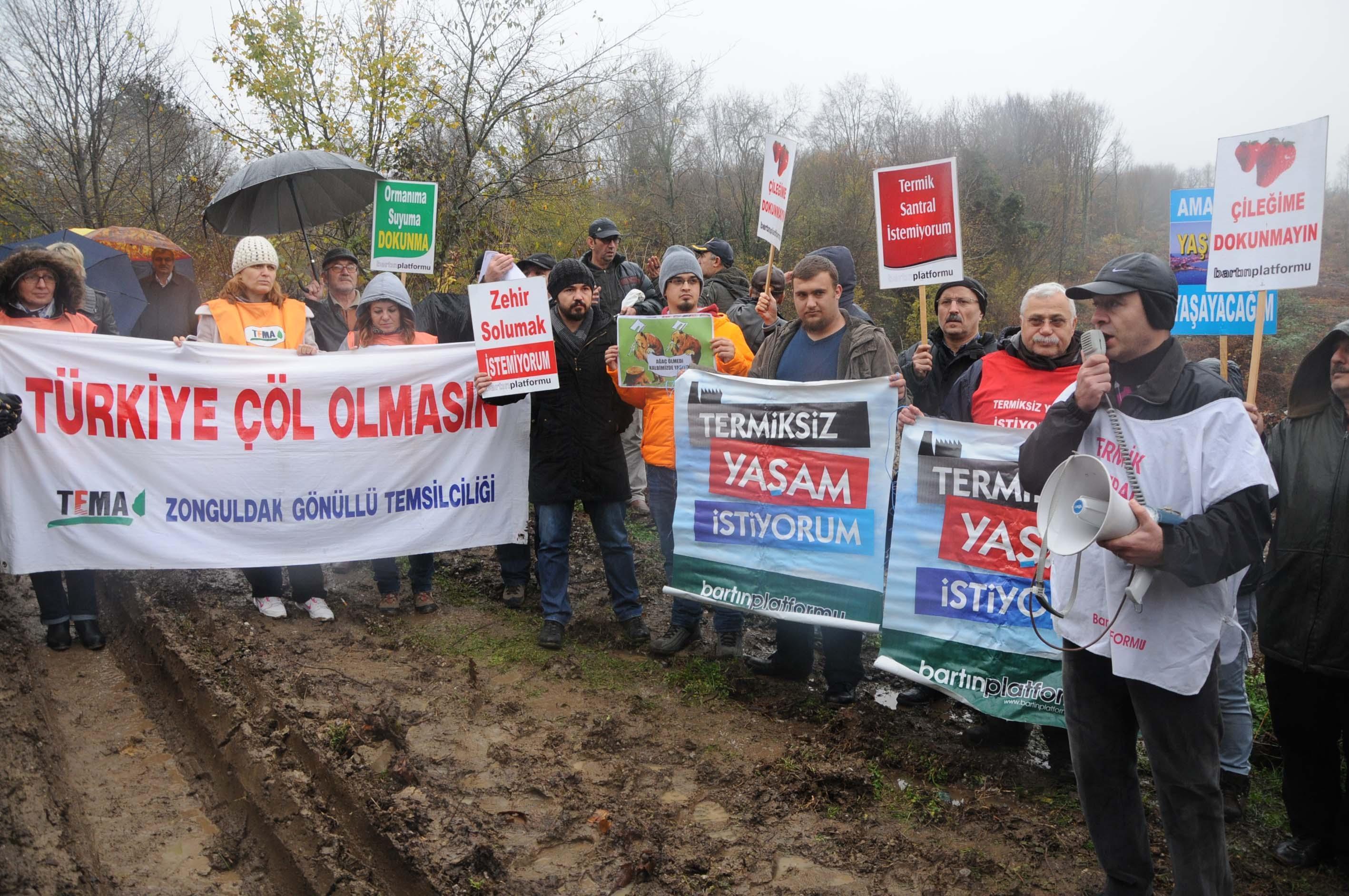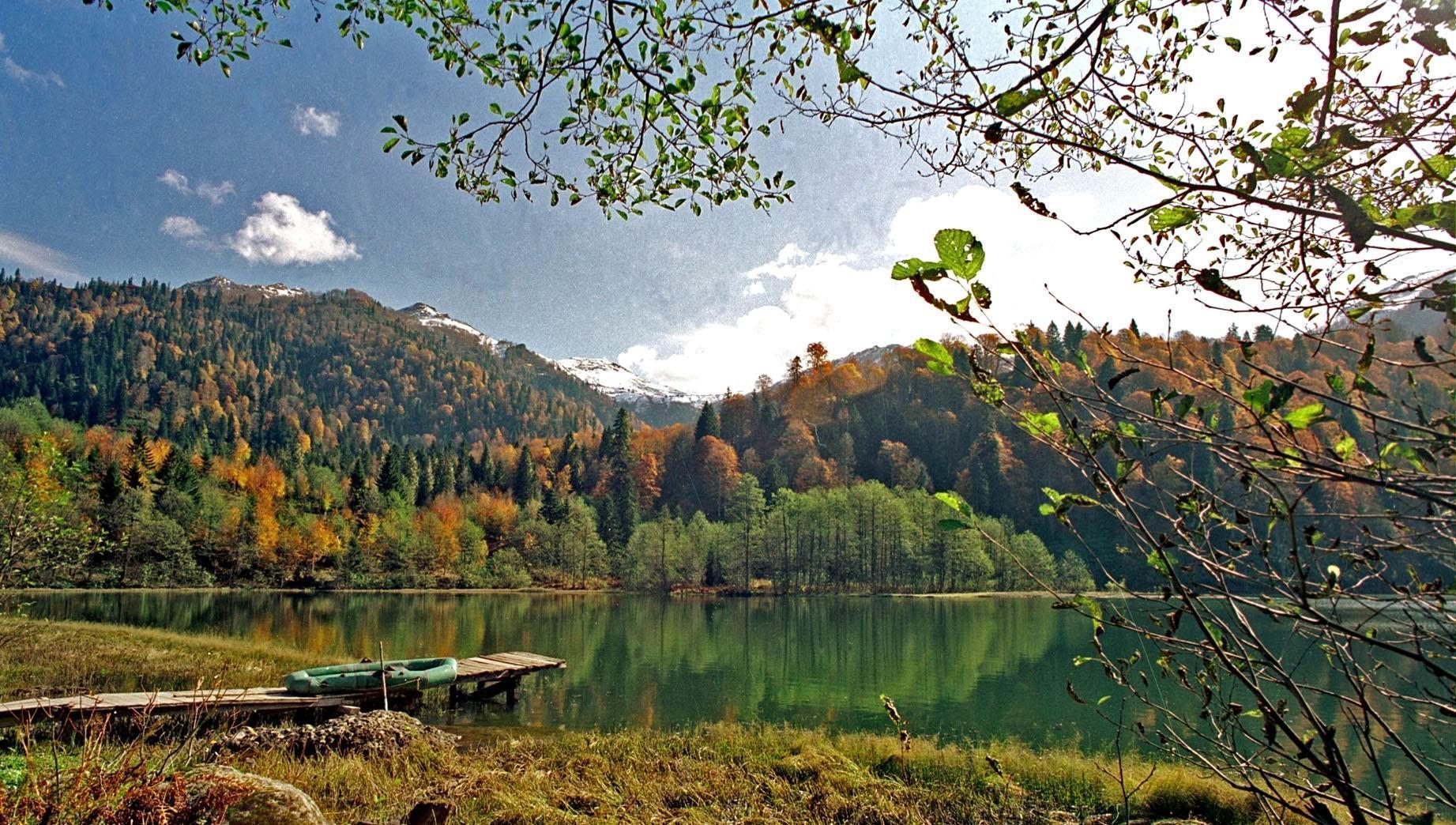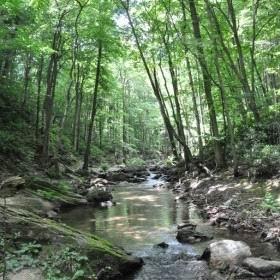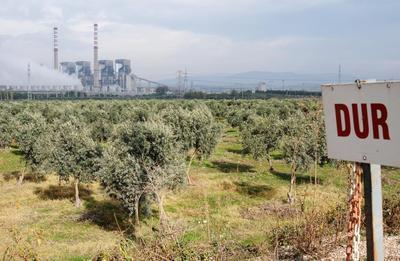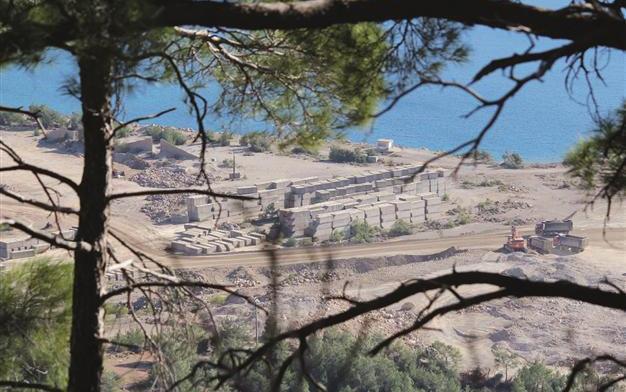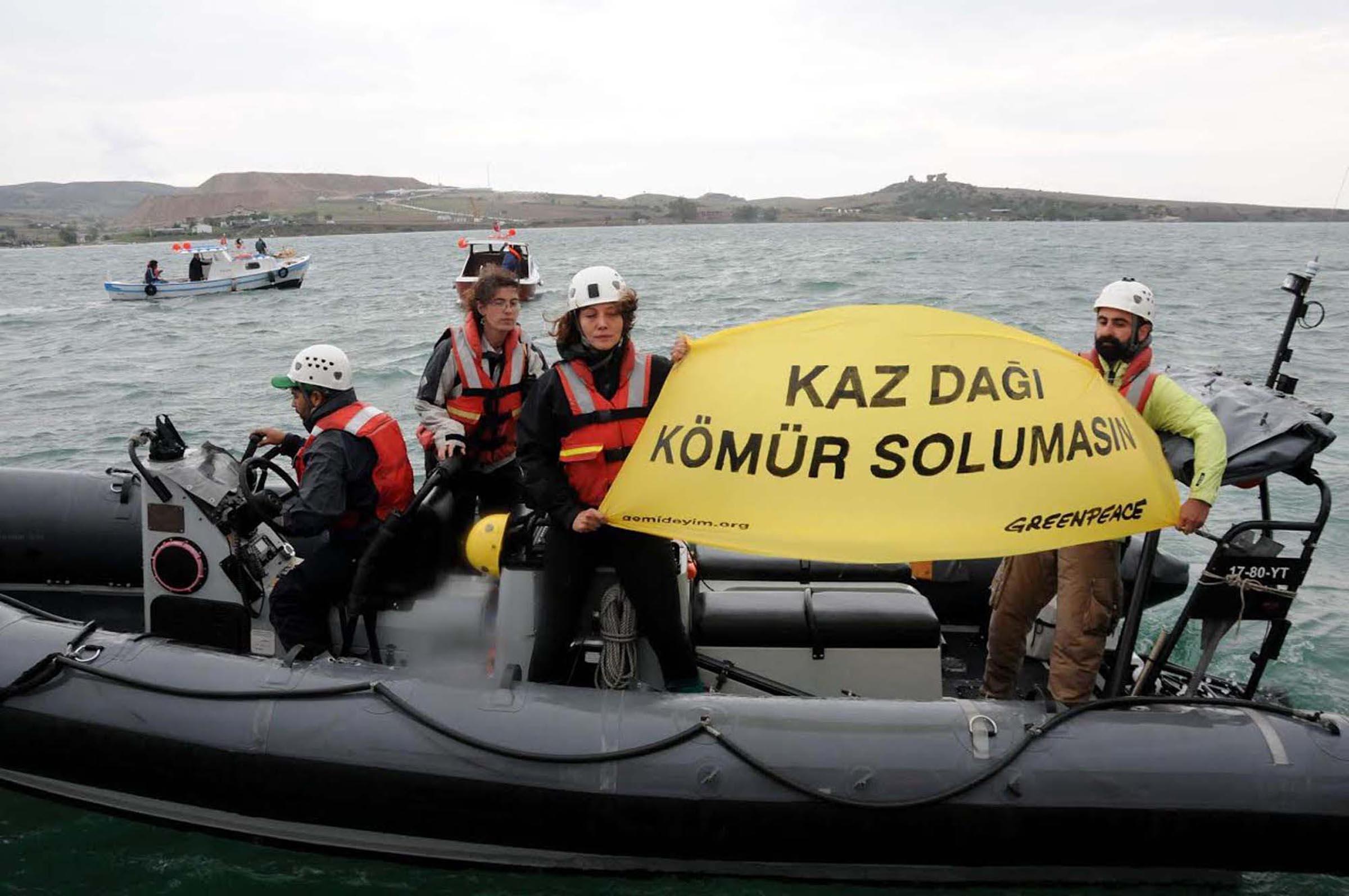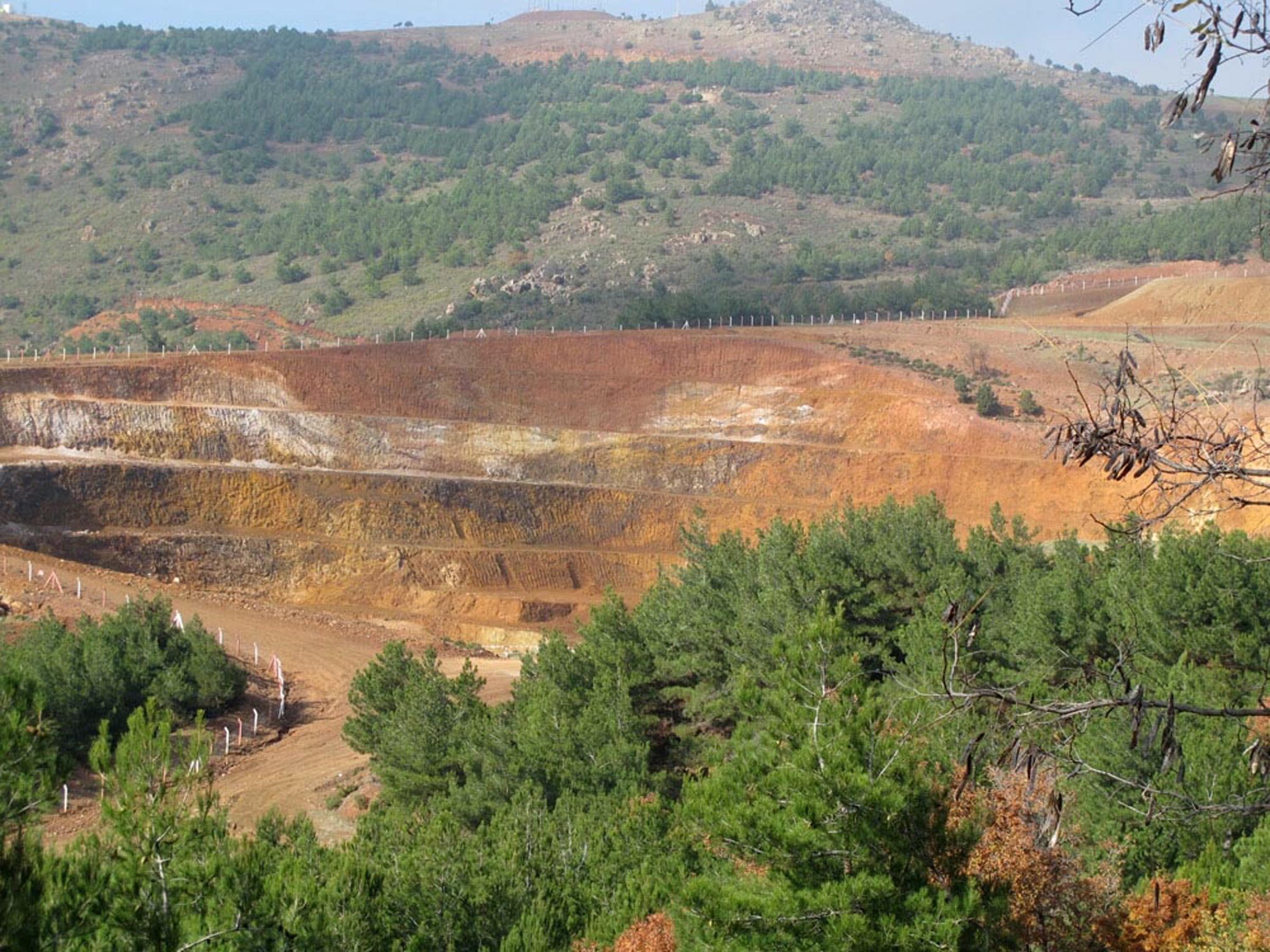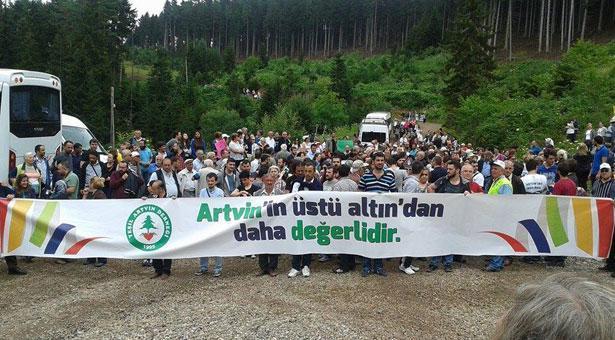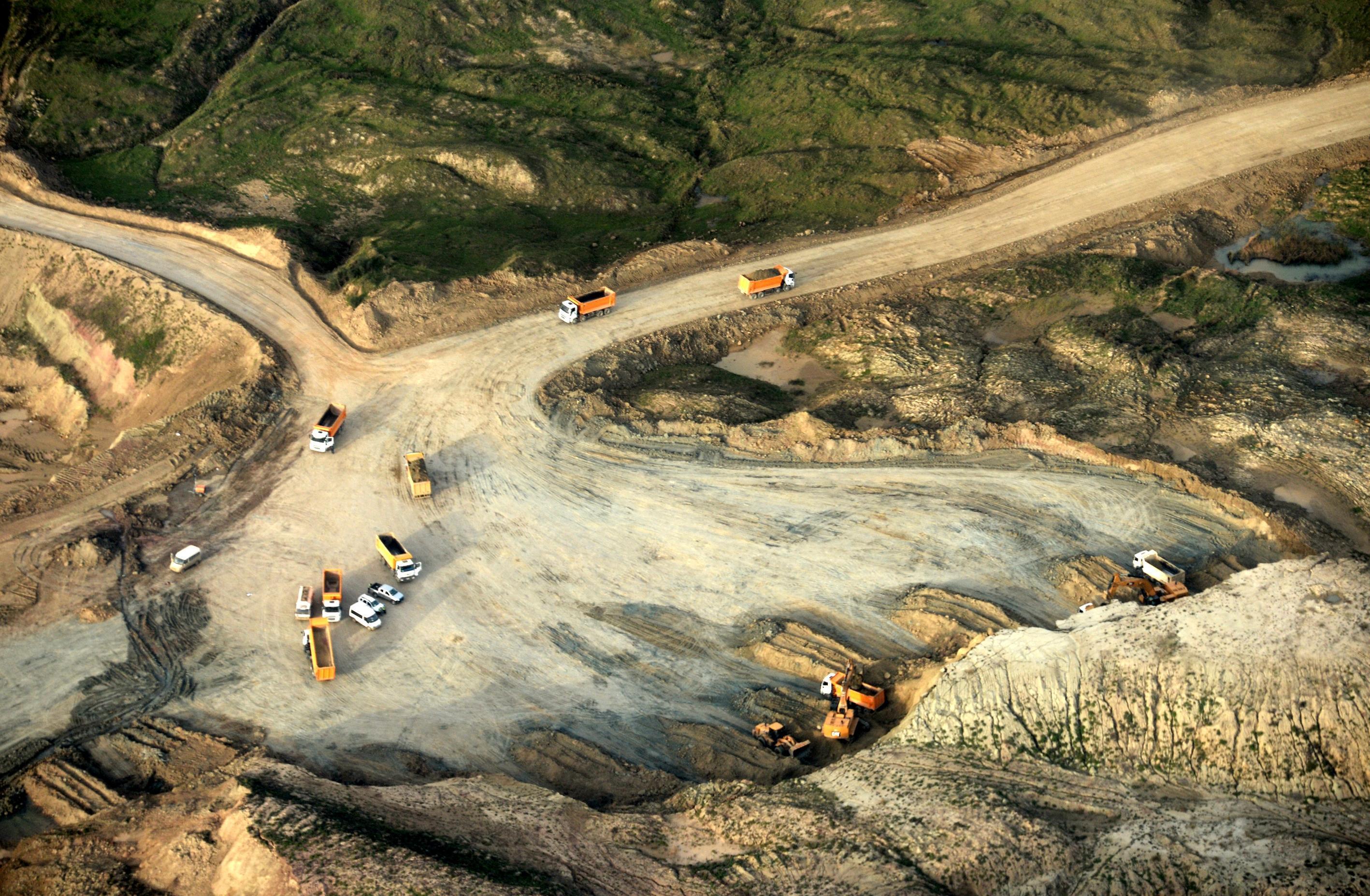Turkey’s ordeal with trees: Top 10 mass deforestation sites
Serkan Ocak ISTANBUL

Istanbul’s third airport and third bridge projects will result in the destruction of 2.7 million trees. AA Photo
From Gezi Park at Istanbul’s heart to the shores of the Black Sea coast, whether with the push of municipalities or Turkey's central government, trees are being felled to accelerate urban transformation plans, mega-projects, mines, hydro-electric and coal plants.
While the damage is usually small-scale in urban areas compared to the massive deforestations conducted largely in preserved natural areas, the latest citizen reaction to the cutting down of 150 trees in Yalova for the construction of an overpass showed that awareness of environmental policies has grown since the nationwide Gezi Park protests.
Green areas have been shrinking in big cities over the years giving way to concrete, but the dimension of the environmental damage that a myriad of energy and projects, including Istanbul’s third airport and bridge, may cause just in terms of the number of trees to be cut down is unprecedented.
Turkish officials have mostly followed a development model that follows the classic notion of “you can’t make an omelet without breaking eggs.” Energy Minister Taner Yıldız has pontificated that “100-200 trees” shouldn’t “stop Turkey’s development,” recalling President Recep Tayyip Erdoğan, who last year famously dismissed the massive protests against the redevelopment of Gezi Park as being sparked for “a few trees.”
The government has also engaged in an exercise of calculation, claiming that more than 2.7 million trees have been planted across the country since the Justice and Development Party (AKP) came to power in 2002.
In an attempt to set the record straight, here are 10 ongoing projects – with many others pending – that will result in (and are already causing) massive deforestation:
10) Amasra coal plant
The building of a disputed coal plant near one of the Black Sea’s most picturesque towns, Amasra, as well as the power distribution lines connecting to the facility, will lead to the felling of an estimated 63,000 trees, according to predictions. Experts say that if the project is realized, it will also have grave consequences on wildlife in the region.
But the damage will not be limited to the deforestation, as locals warn that the plant risks dealing a blow to the coastal town’s bid to enter UNESCO’s permanent cultural heritage list. Many experts have also warned that due to Amasra’s unique climate, the toxic gas emitted by the coal plant could envelop the town and threaten the health of its inhabitants, as well as fishing activities.
Local activists gathered 40,000 signatures against the project, but Environment Minister İdris Güllüce has rejected the criticisms, noting that there was “very important” coal underground in the region. “Turkey needs to use that coal,” Güllüce said.
9) Hydroelectric plant project in Turkey’s lone biosphere reserve
The Uğur hydroelectric power plant (HES) project in one of the most preserved areas of eastern Black Sea, the Maçahel basin that spreads between Turkey and Georgia, threatens at least 165,000 trees according to estimations. The basin is Turkey’s first and only biosphere reserve recognized by UNESCO.
According to the project plans, a 33-kilometer-long and 50-meter-wide corridor will be created by cutting trees to build the power distribution lines connecting to the main plant. The other bad news is that Uğur HES is not the only plant planned in the area: Seven other projects have been finalized and are currently pending. However, most of them have been suspended by courts in separate rulings that stressed the region’s status as a biosphere reserve.
8) Western Thracian power distribution line
A 27-kilometer-long electricity distribution line in the Istranca Mountains of the western Thracian province of Kırklareli threatens thousands of trees. According a parliamentary debate, some 300,000 may be cut down if the Environment Ministry approves the impact assessment report. The area is also an important bird reserve.
7) Coal plant on olive fields in Soma
Some 6,000 olive trees were felled by a contractor to build a coal plant in the Yırca village near the western Turkish town of Soma, before the project was aborted by the Council of State after receiving huge criticism.
According to the environmental impact assessment report, if the project was to be completed, some 200 cubic meters of mostly pine trees would have eventually been cut down too.
Istanbul University scholar Ünal Akkemik says this would amount to at least 250,000 trees.
The legal battle on the urgent expropriation decision of the plant’s land ended with a rare victory for locals and activists. However, the violence used by the contractor’s private security force against activists guarding the site, with the connivance of local authorities, showed once more which side the government is on.
6) Hydroelectric plant and dams on Black Sea's Fatsa
Yet another hydroelectric plant and dam project in the Black Sea locality of Fatsa – well-known for the dissenting attitude of its locals – may result in the deforestation of a vast area of 87 hectares. According to the environmental impact assessment report, an estimated 254,000 trees could be cut down for the project.
5) Turkey’s first nuclear plant in Akkuyu
Turkey’s first nuclear plant in the well-preserved southeastern Mediterranean district of Akkuyu has raised a number of concerns among environmentalists – not least because it would mean bringing nuclear power to Turkey.
The plant, which will be built by Russia’s Rosatom, had its environmental report approved on Dec. 1 after a painstaking judicial process. It will result in the chopping down of 220,000 trees in the area, but another particularly worrying element is that water needed to cool the four-reactor plant will be supplied by the Mediterranean Sea before being poured back into the sea, causing a rise in temperatures.
Experts say that such plants should only be located by cold seas, and could cause irreparable damage in warmer waters. The start of construction for the plant is scheduled for mid-2015 - a result of pressure by the government as the project has still yet to obtain a construction license. By 2023, all four planned reactors are slated to have started generating power.
4) Six coal plants near the mystical Kaz Mountains
Six coal plants planned in the northwestern province of Çanakkale in the mystical Kaz Mountains have drawn huge anger on the part of ecologists, particularly Greenpeace. More than 360,000 trees could be wiped out if all the plants were to be built, officials have warned.
One of the plants, slated to be built by Cengiz Construction (one of the five contractors in the winning consortium for Istanbul’s controversial third airport), was recently halted by a court decision. The $2 billion dollar plant, set to be built near Karabiga in Çanakkale by Cengiz and its partner Cenal Electric, raised particular concern about its impact on the natural habitat of loggerhead turtles and Mediterranean seals, two endangered species whose sanctuaries along the Turkish coast are diminishing due to the insatiable construction frenzy.
3) Nickel mining in Manisa
Among the most destructive energy projects are mines, particularly due to the vastness of extraction areas and the toxic chemicals used in the processing of materials. A nickel mine project that could lead to the felling of between 1.5 million and 2 million trees in Çaldağı, in the Aegean province of Manisa, has recently received the go-ahead from the Environment Ministry. The area constitutes 5.5 percent of all forests in the province.
Opposition party lawmakers say 200,000 tress have already been felled by the company, and any more damage would have irreparable consequences for Çaldağı, which has become one of the flashpoints of resistance against massive mining projects in preserved natural areas across Turkey.
The small locality has been suffering due to pollution from several nickel extraction activities in the region, but activists say the latest mine could further damage agriculture in the region, which is the main source of income for locals.
2) Copper mine project in eastern Black Sea
A copper mine project in the eastern Black Sea province of Artvin, recently suspended by a court decision, could mean the deforestation of a staggering 5 million trees if the project is completed, lawyers representing local activists warn.
The mining company set to operate the facility, Eti Bakır, is again owned by the government-friendly Cengiz Construction.
The mine is set to be established at Cerattepe near Kafkasör, one of the greenest and most beautiful highland meadows in the country. The side is surrounded by the Genya Mountains and the Karçal Mountains further east – the latter are counted among the most important areas in need of protection in the country, according to the World Wide Fund for Nature.
Locals are continuing a 24-hour a day guard in the site, worried that Cengiz could emulate fellow Istanbul airport contractor Kolin and cut down trees in the middle of the night, despite ostensible legal impediments.
1) Istanbul trilogies: Third airport and bridge
But the Oscar for the most damaging deforestation goes for Istanbul’s third airport and third bridge projects, which will both be connected by the new Northern Marmara Highway.
The projects will result in the destruction of 2.7 million trees, according to the forestry minister, with experts arguing that the northern Istanbul forests are an important part for Istanbul’s ecosystem and their destruction could have huge consequences.
The government has heralded the projects as a showcase of Turkey’s prestige and standing in the world, while stressing the economic gains that they will bring. Transport Minister Lütfi Elvan recently said he could not understand why anybody would oppose the construction of a third airport and would consider such person as “ill-willed.”
Activism regarding the project has been growing, but construction in both projects are continuing at full speed despite uncertainty over their legality.
